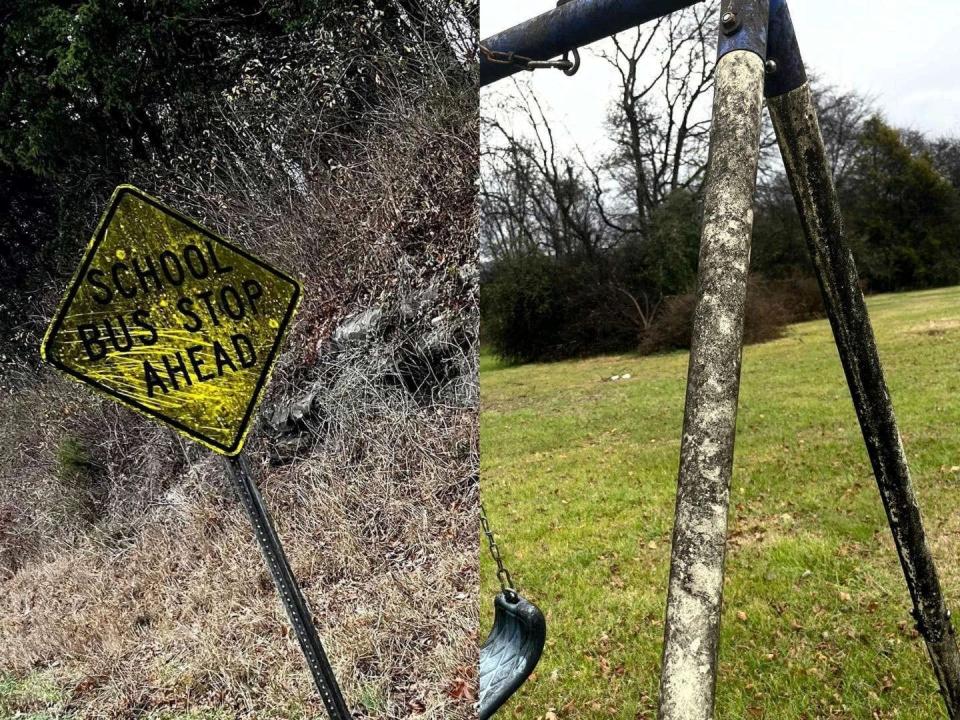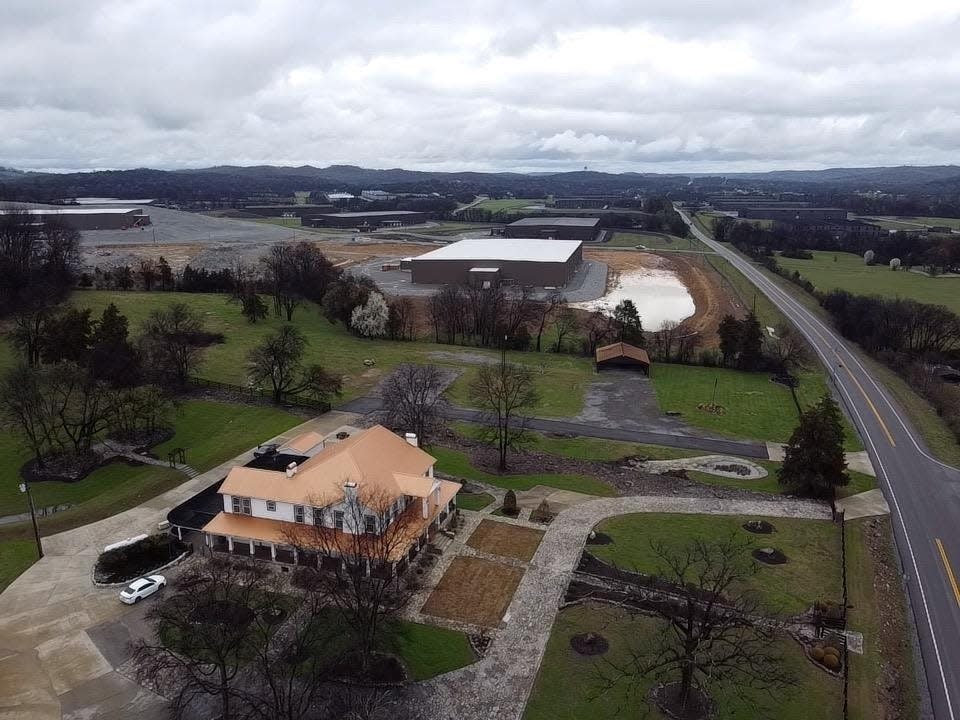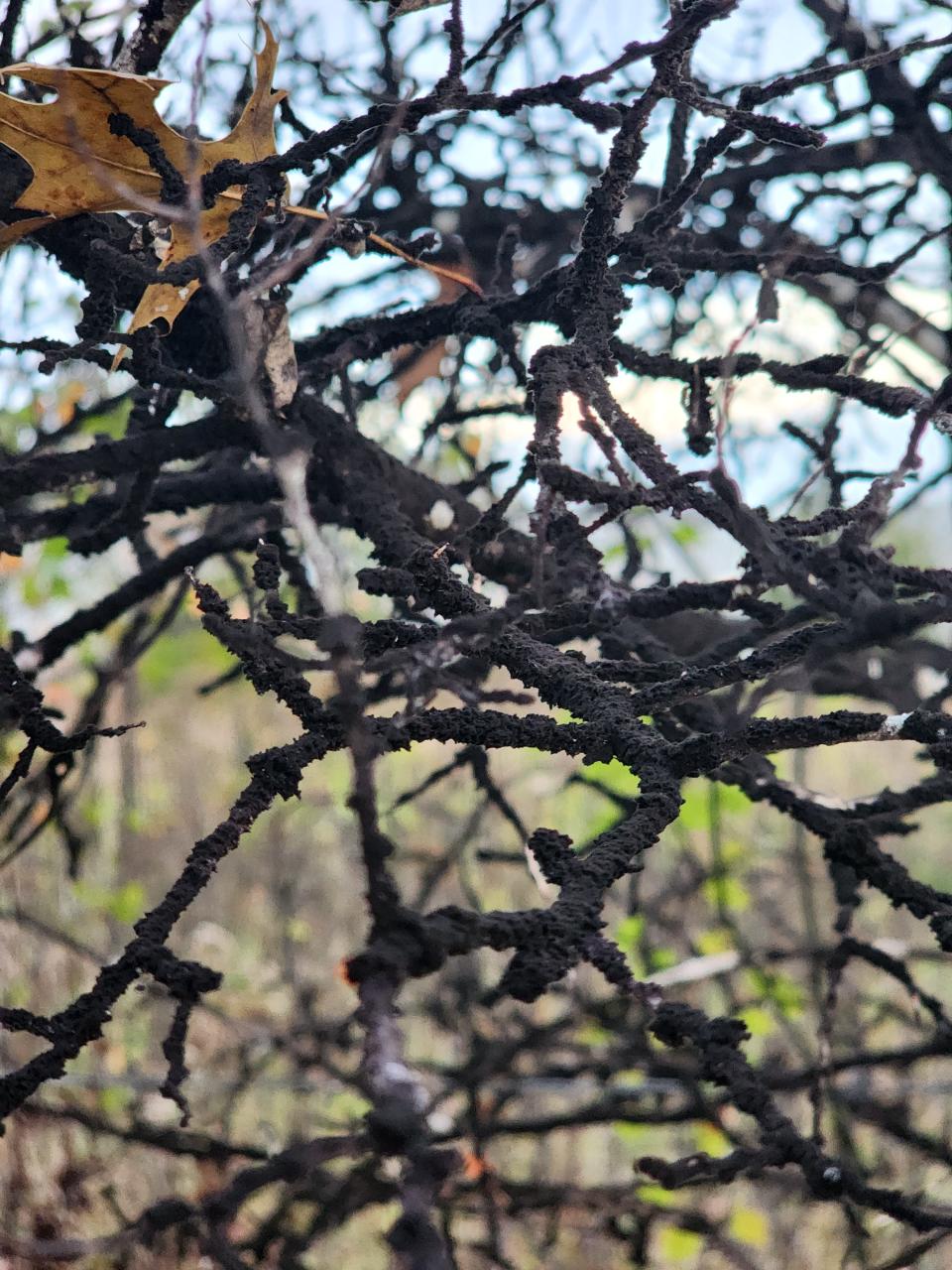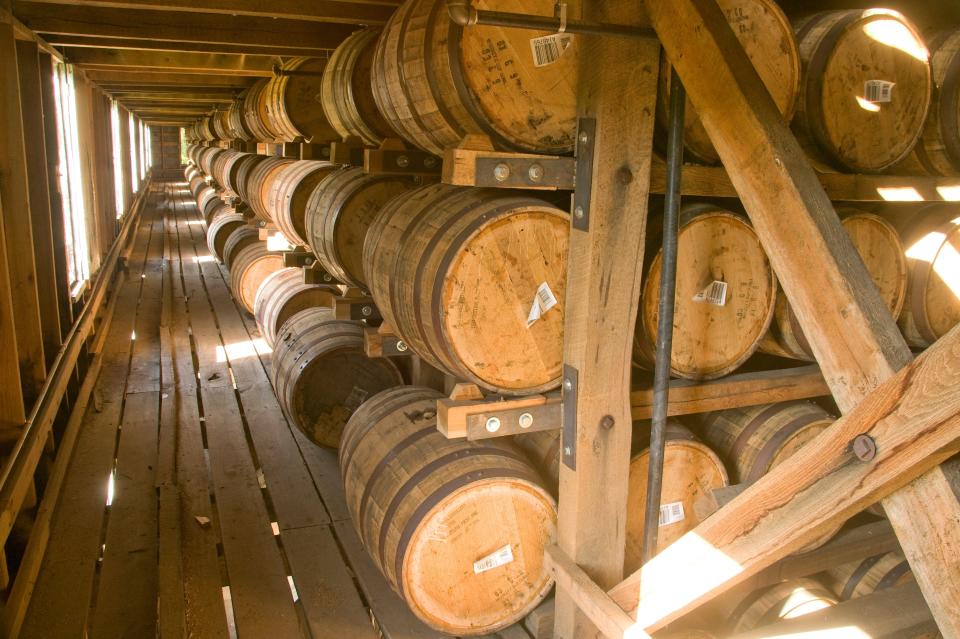Whiskey fungus sparks work stoppage at Jack Daniel's site as property owners file lawsuit
- Oops!Something went wrong.Please try again later.
Whiskey drinkers have heard about the angel's share, the portion of the liquid magically lost in the distilling process. What many haven't heard about is the whiskey fungus, an ugly byproduct of that process.
But familiarity about the fungus is growing thanks to a recent lawsuit, which resulted in a work stoppage at one of Jack Daniel's operations in south-central Tennessee.
As whiskey ages in barrels in a distillery's warehouse, fumes sneak out of the barrels – evaporating that legendary "angel's share" of 1%-2% lost from the barrel. Those emissions attract a strain of fungus, called Baudoinia compniacensis, which feeds off the ethanol and spreads through the air to nearby buildings, trees, plants and other objects.
A property owner in Lincoln County, Tennessee, filed a lawsuit against the local government officials seeking relief from the whiskey fungus, arguing that Jack Daniel's parent company Brown-Forman has not followed the required processes to build and expand a barrelhouse operation on the site.
A county chancellor, or judge, on Feb. 24, ruled that Jack Daniel's must stop work on one barrelhouse, located a few miles southwest of the distiller's Lynchburg, Tennessee, headquarters in neighboring Moore County. Jack Daniel's operation there has 92 barrelhouses storing more than 2 million barrels.
Since work began in 2018 on Jack Daniel's barrelhouse project in Lincoln County, six have been completed. Zoning and planning officials must approve an amended site plan before work there can restart on the seventh, the judge ordered.
But what has gotten all the attention is the whiskey fungus. Even the BBC and The New York Times have covered this case.

What is the problem with whiskey fungus?
For starters, whiskey fungus is an eyesore. Around distilleries, "these fungi grow luxuriantly, producing thick, confluent, crust-like colonies indiscriminately on nearly every surface, causing extensive aesthetic damage," researchers wrote in the journal Persoonia: Molecular Phylogeny and Evolution of Fungi in 2016.
“It wrecks patio furniture, house siding, almost any outdoor surface," the lead author of that study, James Scott, a professor at the University of Toronto told The New York Times. "I’ve seen trees choked to death by it. It is a small mercy that it does not also appear to have a negative impact on human health.”
Scott said he was not aware of any research looking at the potential health risks from the fungus.
When Christi and Patrick Long bought the Tennessee property in 2021, they knew two Jack Daniel's barrelhouses were nearby and they had heard about the black mold.
Coal mines, medicine and mules:: How the oldest distilleries survived Prohibition
‘The holy grail’: In this state lottery, a chance to buy rare whiskey
Pappy Van Winkle probe: Love of rare bourbons lands Oregon officials in criminal investigation

"We knew there was some level of it," Patrick Long told USA TODAY. "But it wasn't to this point where … that's too much risk. We were told it gets on the roof, maybe on the side of the house and you cleaned it off. We had no idea that it actually kills vegetation and trees and it pretty much sticks to everything."
The couple have a wedding and party event center there – Christi Long is the listed co-owner – and they spend about $10,000 annually pressure washing and cleaning the fungus off affected areas.
When the Longs saw more barrelhouses being built in April 2022, they began talking with county officials. Their check of county records found no building permits and no site plans for beyond two barrelhouses.
"Don't get me wrong, we definitely have seen damage today" from whiskey fungus, Patrick Long said. "But come to find out they're going to build 20 (barrelhouses) within a mile of us, and they are huge."
Does whiskey fungus happen anywhere else?
Back in the 1870s, the black fungus was documented in Cognac, France. Subsequently, it's been found worldwide at distilleries making scotch, whiskey, scotch, vodka, brandy, and rum in Canada, Europe, Scotland, Japan, Korea, the Caribbean, and South America.
The fungus is also found in and around food processing companies and bakeries, and dams, Jack Daniel's said in a statement to USA TODAY. "While we are accustomed to microflora, we appreciate that some may not like how it looks and the inconvenience it may present. Based on the information available, we believe it is not harmful to individuals or their property."
Other residents in Tennessee and Kentucky, where distilleries are present, have filed lawsuits over whiskey fungus.
Local residents in York, Maine, recently asked city officials to investigate the spread of "whiskey fungus" from the local Wiggly Bridge Distillery, which is looking to expand.

What will happen at the Jack Daniel's site in Lincoln County, Tennessee?
The Longs say they are not against Jack Daniel's development but want the distiller to provide filtration to prevent the whiskey fungus spread.
Their lawsuit also asks that Jack Daniel's be required to follow the traditional planning and zoning process. Their attorney, Jason Holleman, said an additional lawsuit including more property owners could result, asking for a halt to work at the other six barrelhouses because those weren't properly approved.
Officials said Jack Daniel's project had been grandfathered in by Lincoln County Mayor Bill Newman, as an incentive to get the distiller to come to the region, court documents show. But, notes Christi Long, "our court case shows they are not grandfathered in."
Lincoln County officials had not responded to a request from USA TODAY for an update on the situation.
Jack Daniel's said in a statement to USA TODAY it followed all the regulatory process required in building the barrelhouses.
As for filtration of the ethanol fumes, Jack Daniel's says that's not currently possible. "Existing independent and government research shows that there is no reasonably available control technology to prevent ethanol emissions without significantly adversely affecting the taste and quality of Jack Daniel’s or any other aged whiskey," the company said.

Follow Mike Snider on Twitter: @mikesnider.
What's everyone talking about?: Sign up for our trending newsletter to get the latest news
This article originally appeared on USA TODAY: Jack Daniel's whiskey fungus: Lawsuit leads to partial work stoppage

